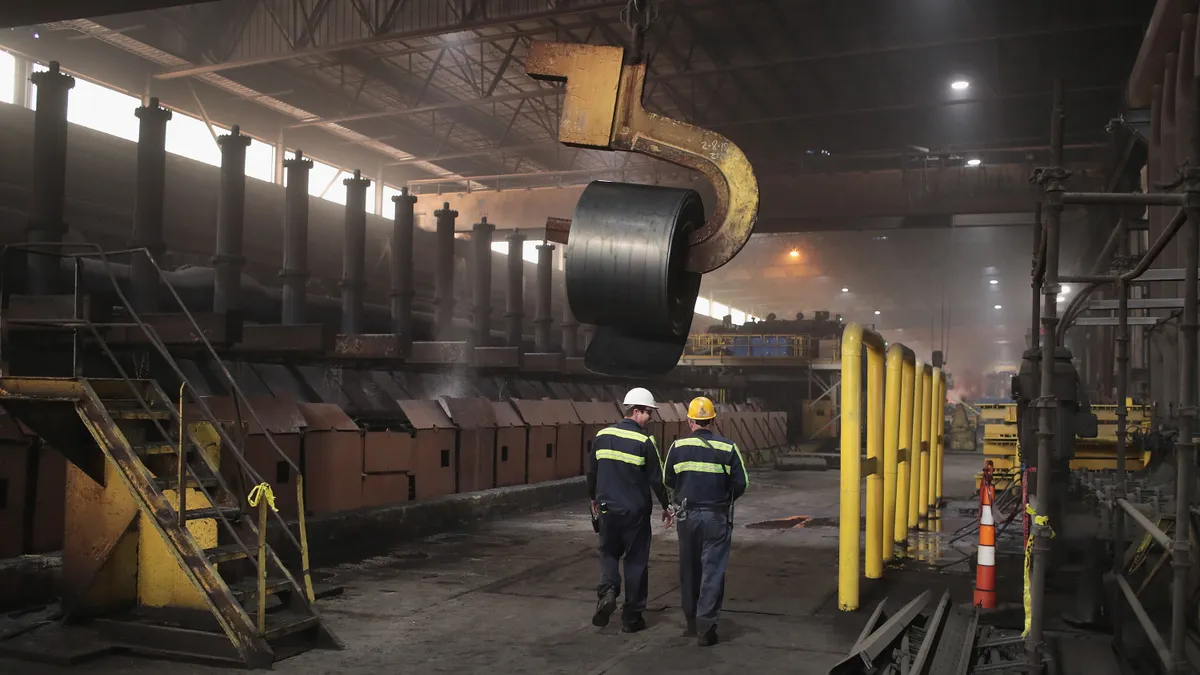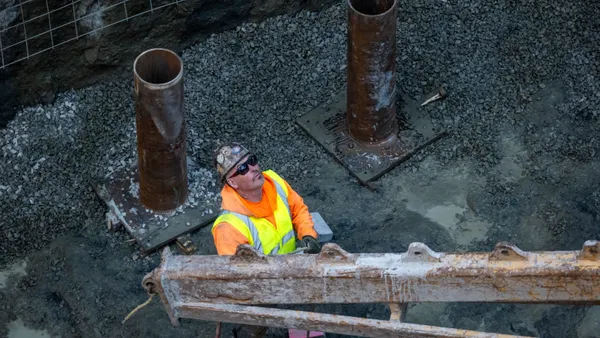Dive Brief:
- The United States will lift tariffs on some steel and aluminum imports coming from Europe beginning Dec. 1 as part of an agreement to ease trade tensions between the two, the White House announced Sunday.
- The agreement sets a quota allowing a certain amount of steel and aluminum to be imported from the European Union duty-free, with anything above that level subject to existing tariffs. In response, the EU said it will remove billions of dollars worth of retaliatory tariffs on bourbon and other American-made products that were set to increase next month, according to a statement.
- The agreement will last two years, over which time the U.S. and the EU will negotiate a new deal to permanently lift tariffs and pressure other countries to reduce carbon emissions from the metal-making process, the White House said.
Dive Insight:
The agreement somewhat eases import costs as steel prices skyrocket and industries including construction have been left scrounging for supplies. While the deal does not completely remove tariffs, steelmakers say the new quota will address rising prices while still prioritizing domestic producers and addressing an overcapacity of steel in China.
"We appreciate the Biden administration’s continued recognition that the American steel industry is critical to our national and economic security, as well as its commitment to addressing the global steel overcapacity crisis and to combating unfair trade practices in the global steel sector," Kevin Dempsey, president and CEO of the American Iron and Steel Institute, said in a statement.
Europe's move to lift 25% retaliatory tariffs on goods like whiskey and motorcycles also eases costs for retailers who were swept up in the escalating tit-for-tat tariff war. The E.U. responded to then-President Donald Trump's 2018 steel and aluminum tariffs with retaliatory tariffs of its own on American-made products including whiskey, jeans, orange juice and motorcycles.
"We are excited that this brings an end to a conflict that was not of our making, and in which Harley-Davidson had no place," Jochen Zeitz, CEO of the motorcycle maker, said in a statement.
Other industries such as home builders, however, are still being impacted by bottlenecks and tariffs related to other materials.
"While administration officials are hailing President Biden's decision to ease tariffs on European steel and aluminum, housing affordability continues to take a hit due to ongoing tariffs on Canadian lumber," said Chuck Fowke, chairman of the National Association of Home Builders (NAHB), in a press release.
"U.S. Commerce Secretary Raimondo was quoted as saying the agreement with the European Union will 'provide relief in the supply chain and drive down cost increases.' But what about cost relief for millions of American home buyers and home owners who have seen the cost of housing rise by tens of thousands of dollars over the past year due in part to unprecedented lumber price volatility fueled by tariffs on Canadian lumber?
"Until a long-term solution can be reached, the administration needs to suspend duties on all imported building materials and goods, including Canadian lumber, to ease supply chain bottlenecks that are causing project delays and putting upward pressure on home prices," he said.
Julie Strupp contributed to this article.















